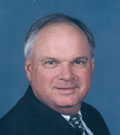News
Hollen is the right man for the job
Stan Hollen, the Co-Op Network's new CEO, will focus on growing credit-union membership, acquisitions and operational efficiency.
June 26, 2005
Stan Hollen is a credit union kind of guy. For the last 36 years, the 55-year-old Hollen has worked with or for credit unions. And that experience is what landed him a job as Co-Op Network's new chief executive.
"He's a go-getter," said Dave Maus, president of Denver-based Public Service Credit Union and chairman of the Ontario-Calif.-based Co-Op's board of directors. "He knows the credit union political landscape and he has a track record for being extremely innovative."
Hollen will replace outgoing Co-Op CEO Robert Rose, who is retiring after serving 15 years in the post.
 |
Stan Hollen is the Co-Op Network's new CEO. |
Hollen knows he has some big shoes to fill and some tough challenges to overcome.
Co-Op Network, established in 1981, is the largest financial electronic-funds-transfer network in the United States. It has just fewer than 2,000 credit-union members and 20,000 surcharge-free ATMs. And it recently inked a deal with Dallas-based 7-Eleven Inc. to offer its credit unions' members surcharge-free access to 1,500 ATMs in 7-Eleven stores.
Co-Op's board expects Hollen to continue the network's 15-year growth trend as well as build strong bridges for the future, said Maus. One hurdle Hollen will have to jump right out of the starting gate: figuring out how to balance Co-Op's growth.
"I think any time you have rapid growth, you always know you have to have competent staff," Maus said. "We're bringing in a president to take us to the next step so that we can continue to grow without having to regroup. … Keeping up with the growth is the primary focus."
For Hollen, who created one of the nation's first shared ATM networks - and built Sacramento, Calif.-based The Golden 1 Credit Union from a $295 million institution to a $4 billion institution - that feat will not be impossible to master.
"Now Stan, knowing all the players in the credit-union industry, and having been around for a number of years, will be a poster child for our Co-Op," Maus said. "We think it can get much larger than it is under his leadership."
2005 and beyond
Increasing the network's reach and strengthening credit unions throughout the U.S. is at the top of Hollen's list. Extending into states like Texas and Florida, where Co-Op doesn't have a presence, he added, also is a goal. Beyond that, Hollen will help Co-Op extend its EFT network through partnerships and acquisitions; help build credit unions' debit offerings, branding and outsourcing contracts, and technology; and extend Co-Op's shared branch services, which are operated through Co-Op subsidiary Service Centers Corp. in Southfield, Mich.
-- Stan Hollen, |
"I have background in helping to start the service network in California, so I can add my experience there," Hollen said. "I also want to help our credit unions place trust in the Co-Op to provide them with training about security and other issues."
To stimulate growth and efficiency, Hollen said, the network will encourage credit unions to do more outsourcing and branding. "Outsourcing is something they could look into instead of driving their own ATMs," he said. "Growth and trying to attract members is a constant challenge…. There are operational efficiency issues, such as doing things the way we have in past when outsourcing might be a better option. That's where the Co-Op can help."
Those types of changes will lend themselves to growth, Hollen added. "Credit unions are still, in the aggregate, small compared to the community-bank market," he said. "They are 5 to 6 percent of total deposits in the U.S. That makes the perfect business model for cooperation between all credit unions" and for more branding programs.
A different animal
One advantage for Hollen: Credit unions don't want to be like banks. Instead, they want to stand out, and that makes his job a little easier.
"Credit unions use their money very wisely, and they have been able to share their resources and pull together, which makes them unique," Hollen said. "And credit unions as a whole are more technologically advanced than banks as a whole. Their systems grew up in more of an online environment so they're used to technology. … The Co-Op can help the technology, help the growth and provide opportunities for growth."
Read also,Co-Op Network names new CEO.
 ChatGPT
ChatGPT Grok
Grok Perplexity
Perplexity Claude
Claude












